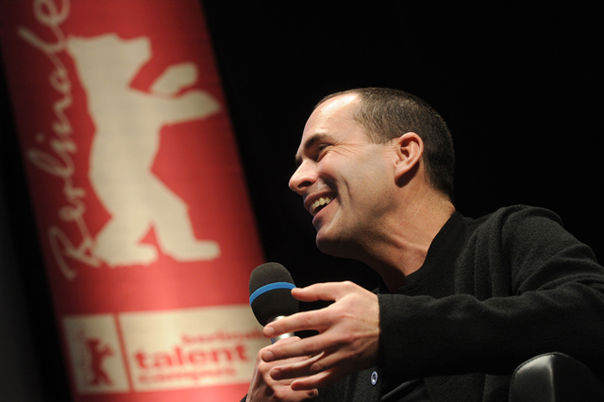Queer International
John Greyson, filmmaker, academic and gay rights activist talks about the current state of queer cinema and its future prospectives.

John Greyson
John Greyson is a pioneering queer filmmaker and theorist and a renowned gay rights activist. He lectures at York University, Ontario, and continues to make award-winning films. He joined a panel of iconic queer filmmakers to discuss the state of queer cinema, and what its future might be. I caught up with him afterwards for a more in-depth discussion.
The queer cinema movement was so pioneering in so many ways. How do you think queer cinema can continue to be pioneering in this way, by using the Internet, crowd funding, etc. to rally supporters?
At different times, different types of access have made themselves available in the making of films; but I think the focus now is on distribution – how do you get people to see your stuff? In terms of the Internet, I think all these models have been around for much longer; we used to do community fundraisers where we would mail flyers and rent a hall and pass a hat round. Nowadays it’s PayPal, but the innovation of it is really just the ease and convenience, which means people are more open to the experience because it is easy to click on a link.
How do you think Western queer culture should help cultures in less developed parts of the world?
Well, as much as we have a responsibility to build those bridges in terms of solidarity, we also have to watch the “colonial“ export factor. Exporting a model from one place to another won’t fly. It is tempting for local organisers to think, “Wow, Berlin is calling”, but we have to make sure we aren’t just seducing them; it has to be something that speaks to their local culture. If you look at the people from the queer movement here at Berlin, they are mouthy and speak back, and that’s what keeps it honest. People aren’t passive. The more you enfranchise, the more people speak back, and the more people get angry and upset and then overthrow. That is the healthiest thing possible.
Can you give us any examples of other queer cultures that are developing in a different way to the Western model?
Well, India is a very interesting example at the moment because there is a queer underground and queer festivals; but also more queer stories being told in Bollywood. So it is fascinating that India as a nation is fascinated by queer stories right now; because as more and more people come out it becomes a part of everybody’s world. Then going to see a queer film doesn’t necessarily mean you are queer – there is a value to it because it’s good cinema, because it’s interesting cinema, and because it’s the world we all live in.


301 Moved Permanently